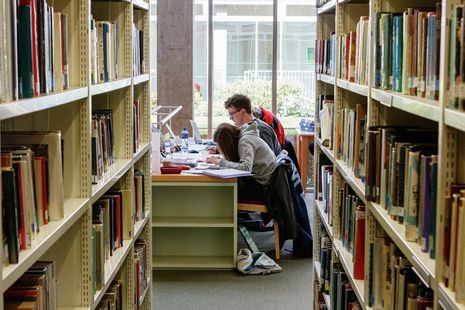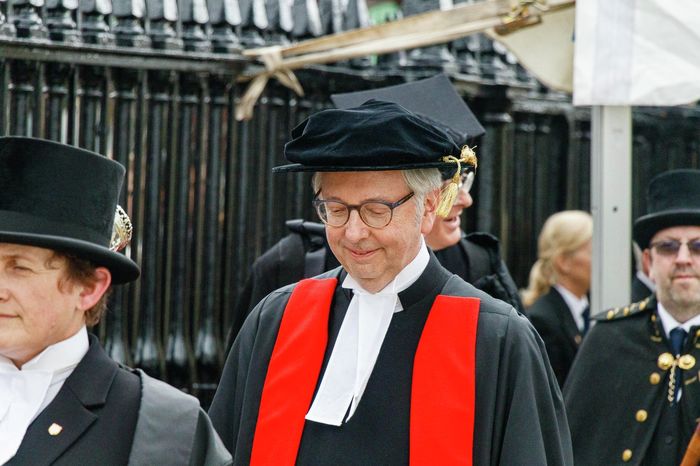Cambridge welcomes potential reforms to university admissions process
The reforms, which would see UK students receive university offers based on exam results, were supported by Vice-Chancellors in a recent consultation

A new overhaul of the university admissions process which could enable more students from disadvantaged backgrounds to access top universities has been praised by the University of Cambridge.
Education secretary Gavin Williamson announced on Friday (13/11) that students could receive offers from prospective universities only after they have been awarded their final exam grades.
Williamson is considering new proposals that would seek to “remove the unfairness” which some students currently face, and hopes these reforms will “level the playing field and empower students to succeed.”
Currently, students receive predicted grades based on teacher’s assessments, and this information is used by universities as part of the admissions process.
However, following the A-Level results day ‘fiasco’ this summer, which saw almost 40% of teacher assessments being downgraded by at least one grade, there have been calls to reform the admissions system.
Students’ final grades were determined by an algorithm, which used information such as assessments, predicted grades and previous school examination results.
After a highly publicised backlash, the government subsequently U-turned, and announced that results would be based only on centre-assessed grades..
Students from disadvantaged backgrounds were particularly affected since their grades were more likely to be under-predicted.
Williamson stressed that the “current admissions system is letting down the brightest pupils from the most disadvantaged backgrounds”.
He continued: “By using predicted grades it is limiting the aspirations of students before they know what they can achieve. We need to explore how to change a system which breeds low aspiration and unfairness.”
Professor Graham Virgo, Senior Pro-Vice-Chancellor for Education, said: “The University of Cambridge welcomes the government’s decision to consult on reforming the way students apply to university, particularly through the adoption of a post-qualification admissions system.”
“The University will work with the government towards the shared goal of establishing a system that will better enable our brightest young people, regardless of their background, to access University places that match their ability.”
This summer, Cambridge accepted a record number of both state school-educated students and black British students.
Other vice-chancellors have welcomed the changes, following an 18-month review by Universities UK (UUK). The UUK has also called for an end to “conditional unconditional offers”, whereby students can receive unconditional offers from universities only if they make it their firm choice.
Professor Quintin McKellar, Vice-Chancellor of the University of Hertfordshire and chair of UUK’s Fair Admissions Review, said: “Any change to PQA must be taken forward carefully by universities, with further consultation with students, government, and those working across the education sector”.
According to research from University College London’s Institute of Education, almost a quarter of high achieving applicants from lower-income households had results under-predicted by teachers between 2013-2015.
Social mobility charity, the Sutton Trust, has announced their support for the proposed reforms: “The conversation on changes to the country’s university application system has been ongoing for decades, but despite the potential benefits of a move to a post-qualification system, which is the norm in most other countries, the system has remained static.
“But this year, discussions on how to award grades in the absence of exams have highlighted some of the major failings of the current system, including its dependence on unreliable teacher predicted grades.”
“These assessments are often inconsistent, differing across schools and pupils, underpredicting some, including high achieving disadvantaged pupils, while often overestimating those at the lower end of the attainment spectrum.”
Clare Marchant, chief executive of UCAS, said: “We support the government taking a serious look at reforming the admissions timetable, which we have been doing over the last few months with universities, colleges, students, and schools.
Marchant stressed that while this reform is not the only solution to improve access to higher education, it has the “potential to make a real difference for young people”.
In the coming months, the government will set out proposals for reforming the current admissions system, in a collaborative process which will invite views from schools, colleges and universities. These proposals will not affect university applications for 2021.
 News / Hundreds of Cambridge academics demand vote on fate of vet course20 February 2026
News / Hundreds of Cambridge academics demand vote on fate of vet course20 February 2026 News / University Council rescinds University Centre membership20 February 2026
News / University Council rescinds University Centre membership20 February 2026 News / Judge Business School advisor resigns over Epstein and Andrew links18 February 2026
News / Judge Business School advisor resigns over Epstein and Andrew links18 February 2026 News / Petition demands University reverse decision on vegan menu20 February 2026
News / Petition demands University reverse decision on vegan menu20 February 2026 News / Caius students fail to pass Pride flag proposal20 February 2026
News / Caius students fail to pass Pride flag proposal20 February 2026










